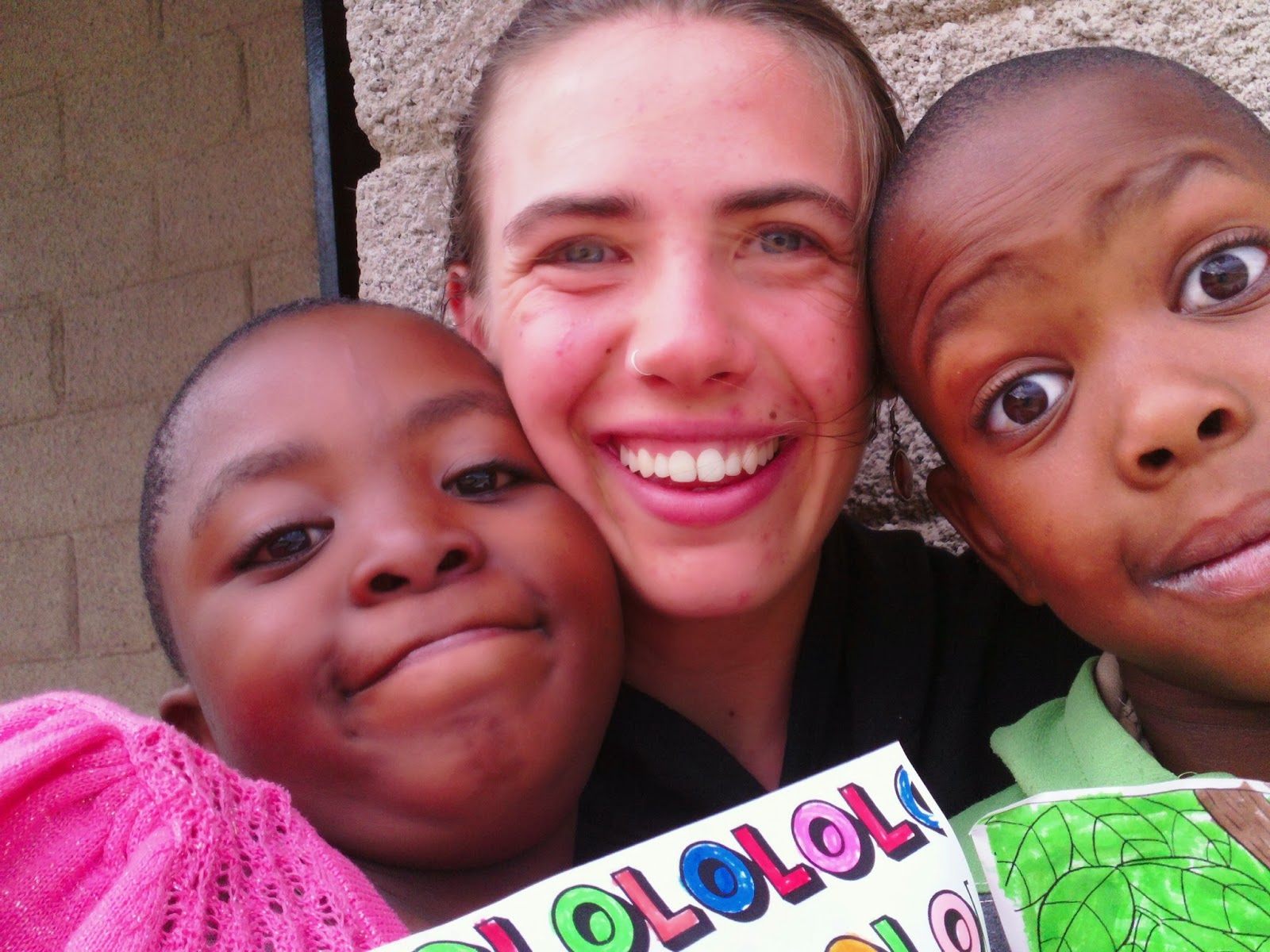10/24/14 9:00 pm
Language
Sesotho can be hard to speak, but it’s easy to construct.
Many sounds I have to repeat a lot in order to say correctly, and certain
phrases turn out to be accidental tongue twisters. For example, yesterday I
learned how to say I need to wash something: Ke hlaka le hlapa moroho (I need
to wash the greens). The hl sound is similar to the “sh” sound, but with more
air between the teeth. I realized that it’s impossible to do unless you smile,
which was kind of a neat discovery.
Other sounds I just remember as a rule, because they don’t
sound the way they are spelled. For example, “tl” makes a “kl” sound, as in
“hantle”, which means good. The good thing about it is that unlike English
where there is a word for every single part of the sentence, phrases in Sesotho
often smush parts together. For example, to say “Do you like to study
Sesotho?”, it’s simply “u rata ithuta Sesotho?” I love Sesotho, and I also have
the best teacher.
 |
| "I'm a California girl. Shat man". Best. |
What always fascinates me is how much languages represent
the cultures they come from. One of the things that was brought up in a
cross-cultural session last week was about how Basotho greet people by their
titles to show respect while Americans don’t usually differentiate as a way to
show respect. It’s common for women to say “don’t call me ma’am, I’m not an old
lady!” But here, people are always ‘M’e (mother, literally), N’tate (father),
abuti (brother) or ausi (sister) after the greeting. It’s very rude to not
greet someone as you pass, and so learning the greetings are the first step to
learning the culture.
Language also varies depending on who you are. Because I’m
white, most people who see me for the first time greet me with “hello” instead
of “lumela”, until I respond in Sesotho, which invariably draws a hearty laugh
and/or a smile. Today yet another of my m’e’s sibling and their kids came by to
see me (it’s all sort of confusing right now who is related to who and how
because it’s such a communal culture-the first three nights I was here I
thought I had 4 host sisters as opposed to two because the same three older
girls were in my kitchen when I came for dinner. Turns out two of them are
neighbors. My m’e’ is a grandmother and is raising my two ausi’s). Anyway, I
met another host brother, who is ten and very playful, and he started speaking
to me in English until my ‘M’e (bless her) admonished him to speak Sesotho to
me! Then I hung out with him and my older host sister, who is eight, in my
room. We listened to Frank Ocean and they colored. Then my abuti was like “do
you have photos on your computer?” Turns out he speaks amazing English and goes
to a really good school in Maseru where they have computers, the likes of which
I probably will not see in my time here. Chalkboards and paper and creativity
is what I’ll be working with.
 |
| Host sibs. Showing off coloring book art. |
 |
| weirdos. love. |
Anyway, it is 10:00 here, which is literally the latest I’ve
stayed up in my 2+ weeks here, so it is definitely bedtime. Tonight I won’t
forget my earplugs, and the bat that’s stuck in my roof won’t keep me awake.
Khotso.
Hey there dear Gracie. So wonderful to soak up your pearls of wisdom on this blog. Sounds like you are having an amazing time. You are a great writer and so insightful! Keep up the good work and continue to learn and enjoy. Much love from your admiring Aunt Debbie.
ReplyDelete